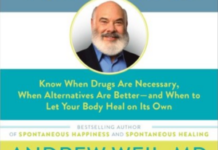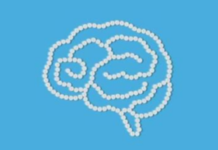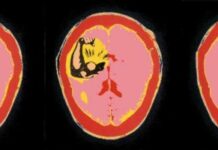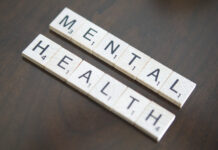Dr. Andrew Weil Says We’re Taking Too Many Medicines
From The New York Times: According to Dr. Andrew Weil, who is best known for popularizing the concept of integrative medicine, the problem of overmedication...
Calling it “Brain Disease” Makes Addiction Harder to Treat
From The Boston Globe: Conceptualizing addiction as a biological brain disease is often ineffective, as the biological model overlooks the important psychological and social factors that...
Yoga and Meditation Can Change Your Genes, Study Says
From TIME: A new scientific review suggests that yoga, meditation, and other mindfulness activities can reverse stress-related changes in genes linked to health problems and...
Power Causes Brain Damage
From The Atlantic: New research suggests that power may impair neural processes involved in feeling empathy and understanding others' perspectives. Recalling experiences of powerlessness can help...
Why Are So Many Adults Today Haunted by Trauma?
From Greater Good Magazine: According to Dr. Gabor Mate, capitalism plays an important role in childhood trauma. Because our political and social systems do not support...
Colleges Get Proactive in Addressing Depression on Campus
From The New York Times: The number of college students with mental health concerns is rapidly increasing, straining many universities' mental health and counseling centers. Colleges...
Growing Use of Smart Drugs by Students Could Lead to Disaster
From The Conversation: University students are increasingly using "smart drugs," including amphetamines and Modafinil, to enhance their academic performance. These drugs tend to be addictive and...
New Bill Targets Asian-American, Pacific Islander Community
From NBC News: Representative Judy Chu recently introduced the Stop Mental Health Stigma in Our Communities Act, a bill to reduce mental health stigma in...
Researchers Question the Utility of an ADHD Diagnosis
A new article examines the usefulness of the ADHD diagnosis and suggests alternatives
Invitations to Crucial Re-orientation
In this lecture for the Forum for Existential Psychology and Therapy, Søren Hertz, a child and adolescent psychiatrist in Denmark, challenges our tendencies on to focus on individual...
Those at High Risk for Psychosis More Likely From Deprived Neighborhoods
A recent study published in Schizophrenia Research examines the incidence individuals deemed “Ultra High-Risk” (UHR) for psychosis and their neighborhood of residence
New Data on the Adverse Effects of Meditation and Mindfulness
Study reports on the less-examined findings of difficult and painful meditation-related experiences.
Prozac Nation is Now the United States of Xanax
In this piece for The New York Times, Alex Williams discusses the social, political, cultural, and economic trends that have led to the recent rise in...
Dealing With Changes in Psychiatry Through the Years
In this guest post for Shrink Rap, Dr. Maher critiques the ways psychiatry has changed over the years. While psychiatry used to be humanistically, psychodynamically oriented,...
United Nations Report Calls for Revolution in Mental Health Care
In a new report, the United Nations Special Rapporteur on the right to health, Dr. Dainius Pūras, calls for a move away from the biomedical model and “excessive use of psychotropic medicines.”
Study Explores Professional Help-seeking Among Persons with Depression
A large review of studies finds that men, young and elderly adults, ethnic minorities, and individuals with lower education status are most at risk for not seeking help.
Fixing Genes Won’t Fix Us
From The Boston Globe: Scientists' focus on biology and genetics research downplays the role of socioeconomic factors in causing distress and health problems.
"Science is threatening a new era of...
Stories from the Psych Ward: Why Drugs Aren’t the Cure
In this piece for Elephant Journal, one man tells his story of being locked up and forcibly drugged in the psych ward, and how he...
A Traumatic Experience Can Reshape Your Microbiome
From Science of Us: A recent study suggests that our guts may harbor evidence of traumatic life experiences many years after the fact, impacting our...
Researchers Reveal Misconceptions About ADHD
A new article explains common misconceptions about ADHD that are held by teachers and mental health professionals and may lead to overdiagnosis and overmedication in schools.
Risk of Suicide After Hospitalization Even Higher Than Previously Estimated
New analysis of post-discharge suicide rates finds estimates 6 times higher than recent studies.
Risk of Psychosis Greater for People from Ethnic Minorities
From The Guardian: A new UK study shows that people from ethnic minorities have up to a five times greater risk of psychotic disorders than...
Who Names Diseases?
From Aeon: The World Health Organization (WHO) recently issued new guidelines requiring diseases to be named for generic descriptive terms, instead of regional or politically...
The Surprising Science of Fidgeting
In this piece for The Conversation, Harriet Dempsey-Jones provides a variety of possible explanations for why we fidget, as well as the increasing popularity of...
Stand Firm: Resisting the Self-Improvement Craze
From ABC: The self-help and self-improvement industry are more popular and widely accepted than ever. However, the moral imperative to constantly think positive and always...

































